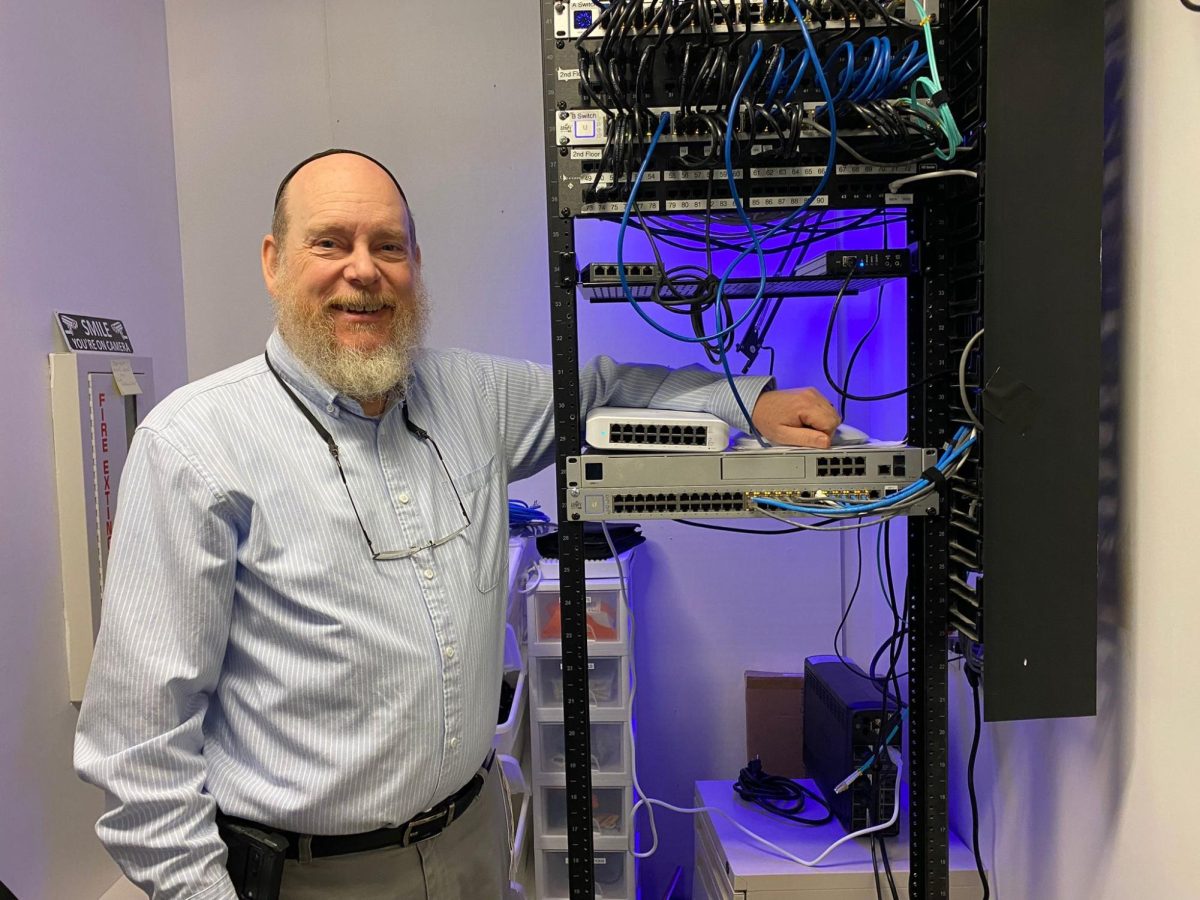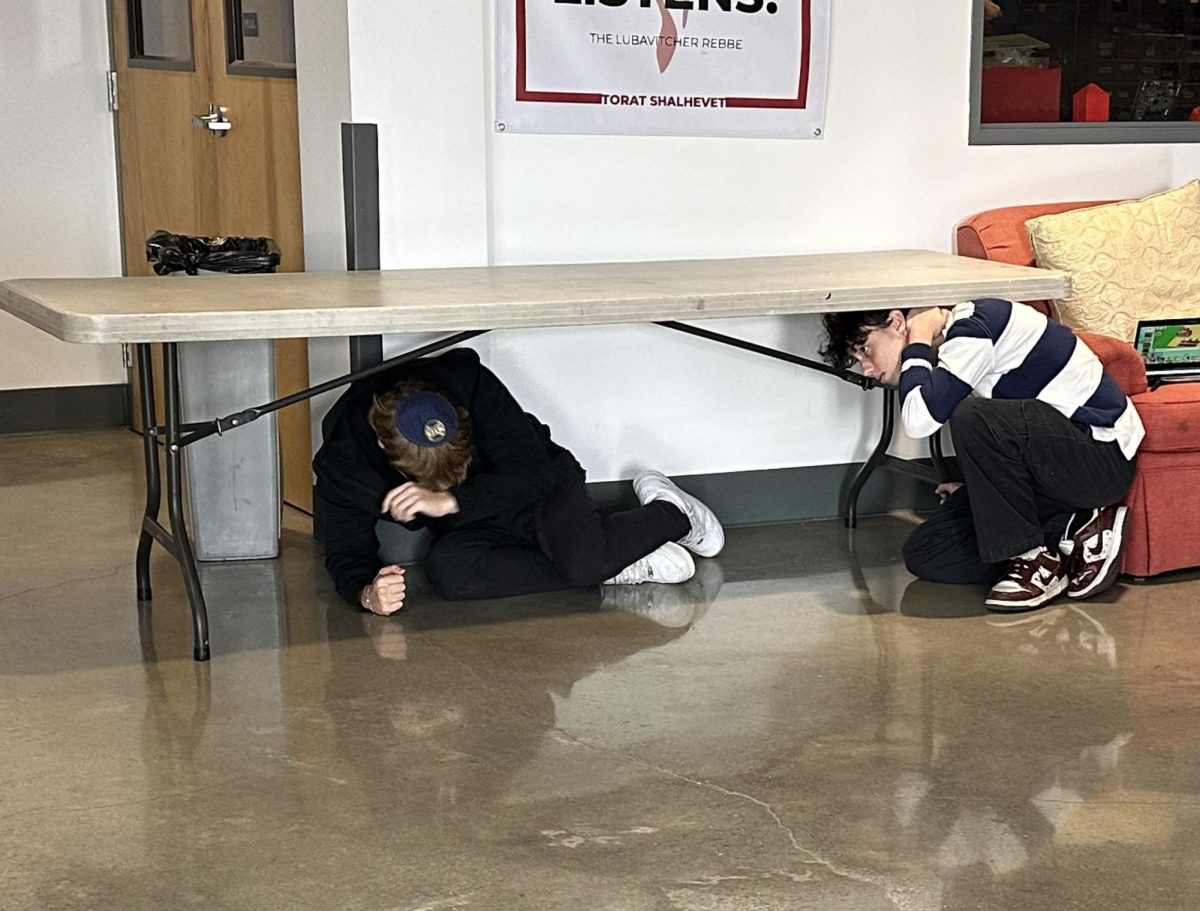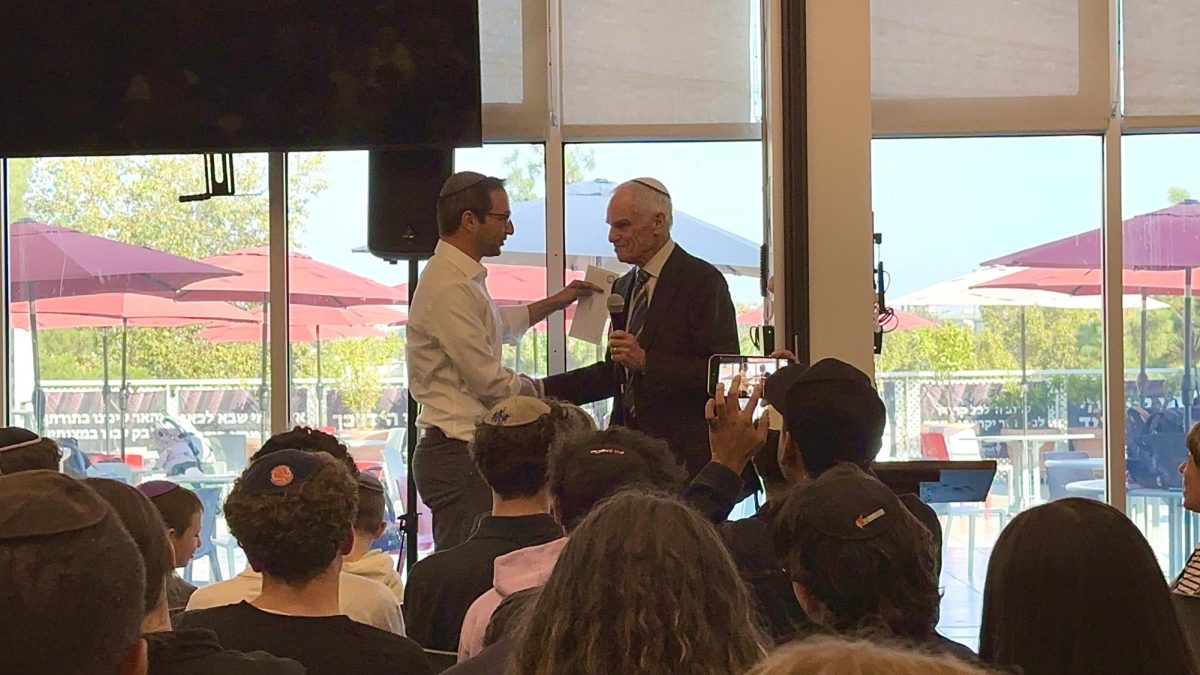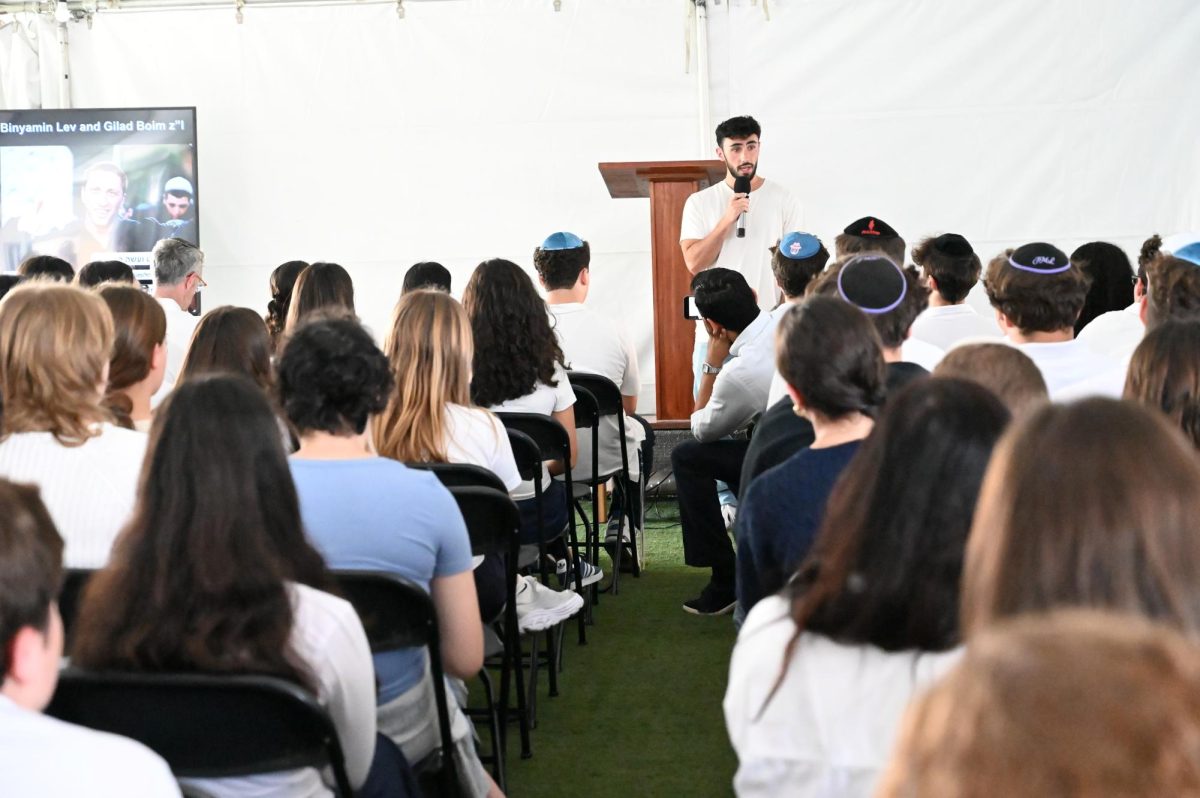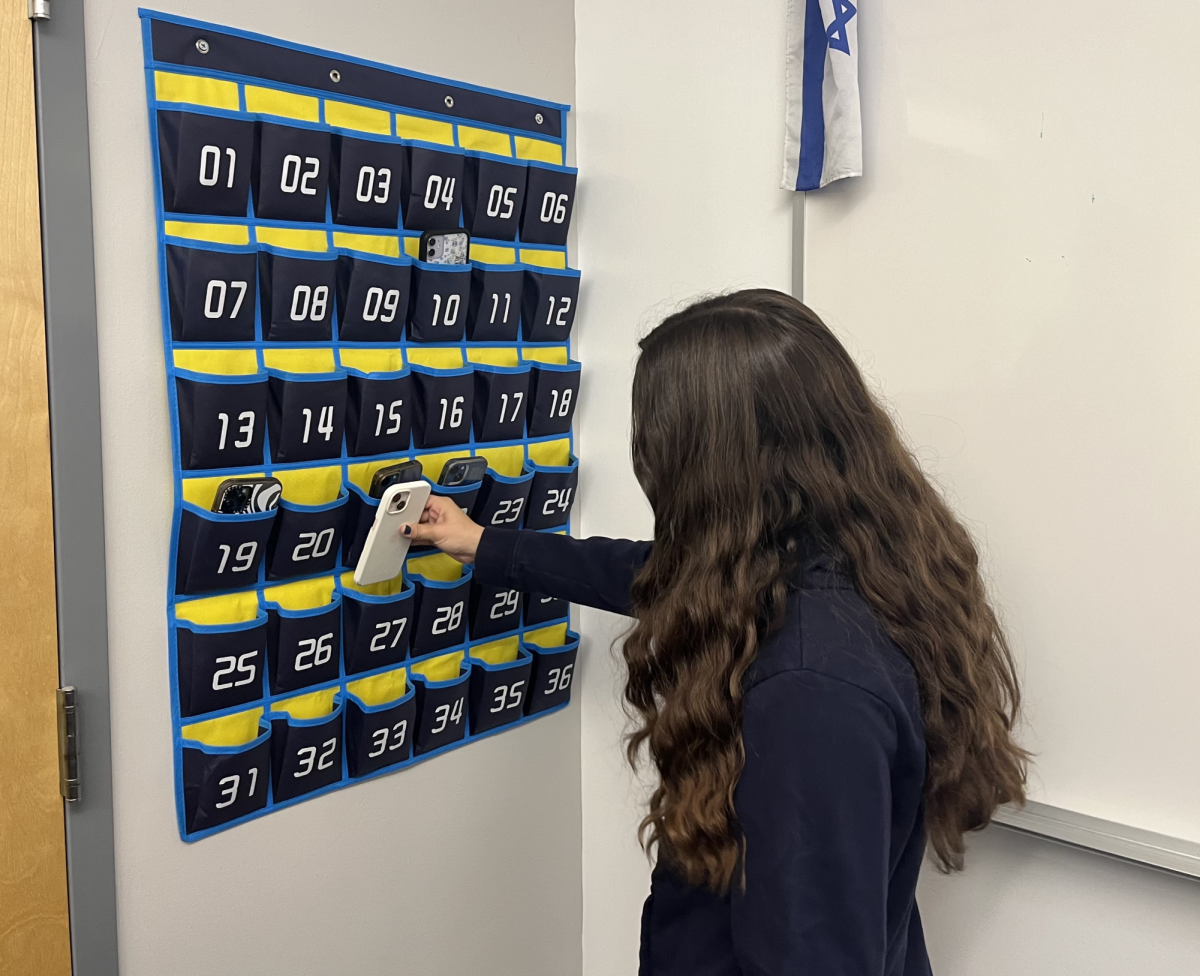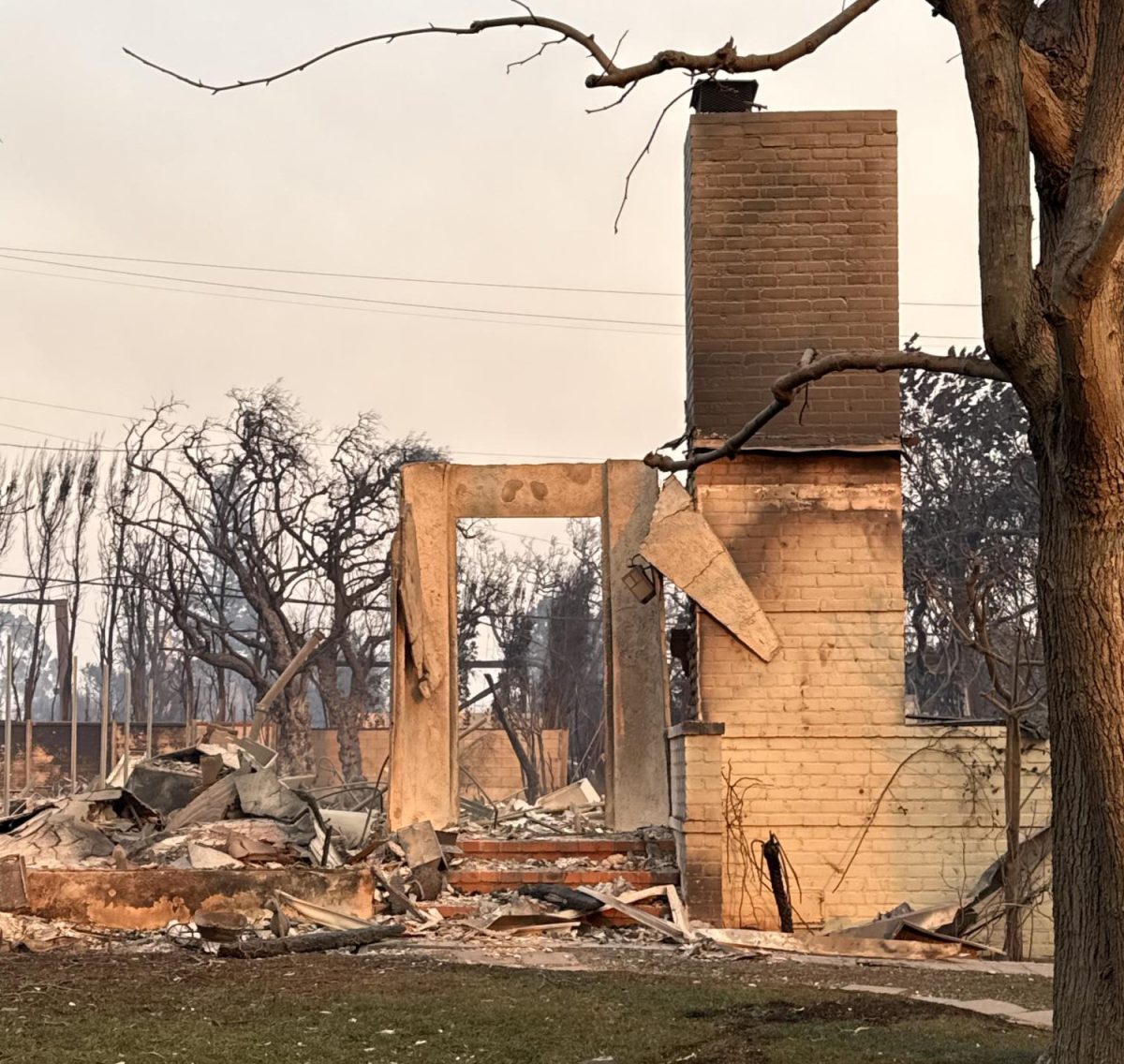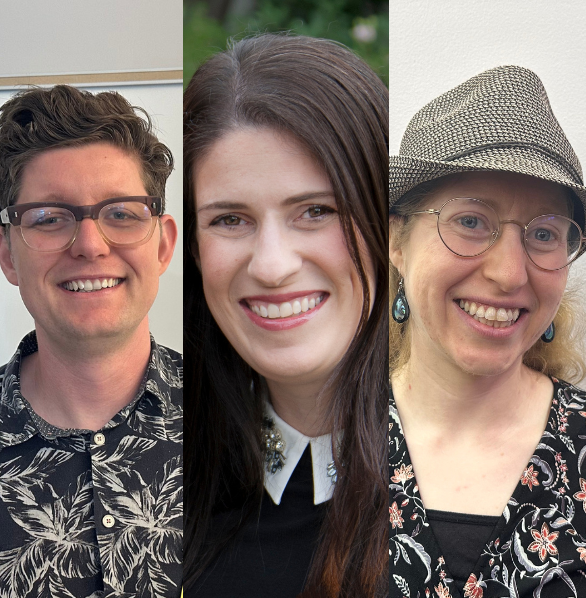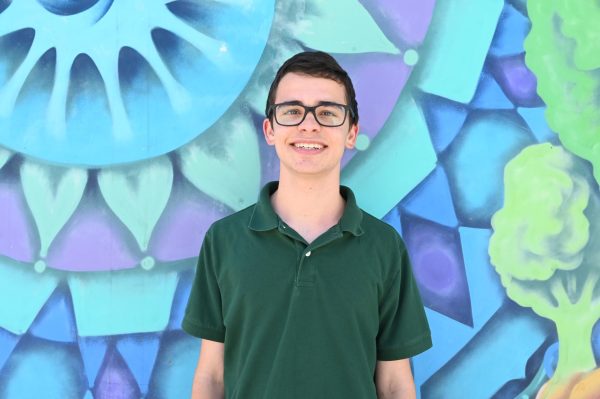After a hiatus, fully operational WiFi – and Mr. Yossie Frankel – have returned to Shalhevet.
Mr. Frankel, who served as Shalhevet’s IT Director and Director of Ed Tech – educational technology – from 2009 to 2015, has assumed those positions once again and now occupies the second-floor tech office opposite the windows overlooking the gym.
While the network still isn’t always perfect due to the hundreds of devices connected to it, he said the issues from last year have been fixed, and connection tests now show reliable speeds.
“It should be fairly stable now,” Mr. Frankel said. Invoking a superstition against the evil eye, he continued, “Bli ayin hora, all the reports I’m getting as I’m asking people is things are pretty stable.”
He addressed the WiFi issue in part by splitting the school’s network into three separate connections, he said.
In last year’s system, the school’s internet network handled each device connected to it individually before addressing the next request, he said. Now, however, he has split what was a single network into three – one for students, one for staff, and one for guests.
This opens up additional bandwidth, Mr. Frankel said, so slightly slower connections can all occur simultaneously. And since the vast majority of requests the network receives do not take long to handle, the decline isn’t noticeable.
“What was happening to everyone else is that you would have 100 people wanting to attach to the access point,” Mr. Frankel said. “The access point would go ‘I can only deal with one of you at a time’ and go schizophrenic.
“Now it goes, ‘I can deal with 300 of you simultaneously.’”
This has come as a relief after students and faculty had experienced considerable lag during the 2022–23 school year – the upgrade received mostly positive reviews from upperclassmen in an informal Boiling Point survey.
“Yeah, I think it’s way better…,” said senior Zev Berenson. “Since last year, 100%.”
Junior Eliana Deitcher hadn’t seen much change and was less confident that the modifications had merited faster speeds.
“I think the WiFi has been pretty much the same as last year,” Eliana said.
Meanwhile, despite internet-connection tests showing more than adequate speeds, senior Mordechai Heller soured on this year’s WiFi.
“I think it’s worse, actually,” said Mordechai.
After Shalhevet, Mr. Frankel went to work for the Center for Initiatives in Jewish Education, or CIJE, a consortium of Jewish schools who were receiving funding to increase STEM teaching.
In 2017, he moved to Harkham Hillel Hebrew Academy, where his son was a student at the time. Then, when his son was a sophomore at YULA, an IT position opened up there, which Mr. Frankel took.
When his son graduated earlier this year, Mr. Frankel put his name out as being available. He received around 10 offers, he said.
Shalhevet, though not the highest-paying offer, won out.
“YULA’s great, but I really love it here,” he said. “I like the coeducational side of things, right? Myself, I’m a chossid, so I’m very shtark” – that is, stringent – “in regards to boys-girls separate. But the dynamic here is really good.”
Mr. Frankel is also a big fan of Professor Lawrence Kohlberg, the progenitor of Just Communities in schools and whose influence inspired Dr. Jerry Friedman to found Shalhevet. Dr. Kohlberg’s method of coaxing students through stages of moral development included empowering them to make decisions about school governance and challenging them with discussions about difficult moral and topical issues.
He is also assisting Mr. Taek Chang with Shalhevet’s robotics team, Team 6000. Mr. Frankel recalled helping then-junior Seiji Shaw ‘17 found the team in 2016, when he was already working for CIJE but still based in the Shalhevet building.
“Actually, no one helped Seiji,” he amended. “He set it up himself.”
Team 6000 was the first Orthodox Jewish team outside of Israel to participate in the international FIRST Robotics Competition (FRC), in which Shalhevet competes, and he said that Mr. Chang would be the team’s main faculty advisor due to Mr. Frankel’s other responsibilities.
In his role as IT Director, Mr. Frankel has also set the television screens around the school to display slideshows of various salient information, including the weather, Jewish holidays, schedules, Boiling Point stories and Shalhevet sports scores.
He said the content is currently maintained by an outside company through the cloud but that he hopes to hand its control to a student committee or another faculty member.
His goal, he said, is for the technological needs of faculty and students alike to be met, particularly following a difficult year of WiFi, when sluggishness and lack of network connection were issues throughout the building.
Part of this effort has included handing out back scratchers to the teachers, indicating he’s got their backs.
“I’ll be doing other things for the students as the year goes on … probably it’ll be mints,” Mr. Frankel said, adding that – as he did at YULA – he plans to post a sign reading “You’re worth a mint,” a riff on “You’re worth a minute.”
Asked if he has any other hobbies, Mr. Frankel proceeded to pick up a shofar and blast the full litany of notes, startling a few passersby in the hallway by his office with the clamor of his tekiah gedolah (long blast). Admissions and Development Associate Molly Jalali poked her head in the office, wondering if someone was reciting Selichot.
He also enjoys anime – Japanese animation.
“I started learning Japanese – which I don’t speak well at all – when I almost got a job to move to Tokyo,” Mr. Frankel said. “And the easiest way to learn Japanese was to watch anime.”
Although anime series can at times dip into a more indecent realm, those are not Mr. Frankel’s series of choice.
“I must say that the type of anime that I watch is not the type that would curl the rabbinic beard,” he clarified.
“I’m talking about nice, clean Studio Ghibli anime,” he added, referring to the family-friendly Japanese anime studio.

